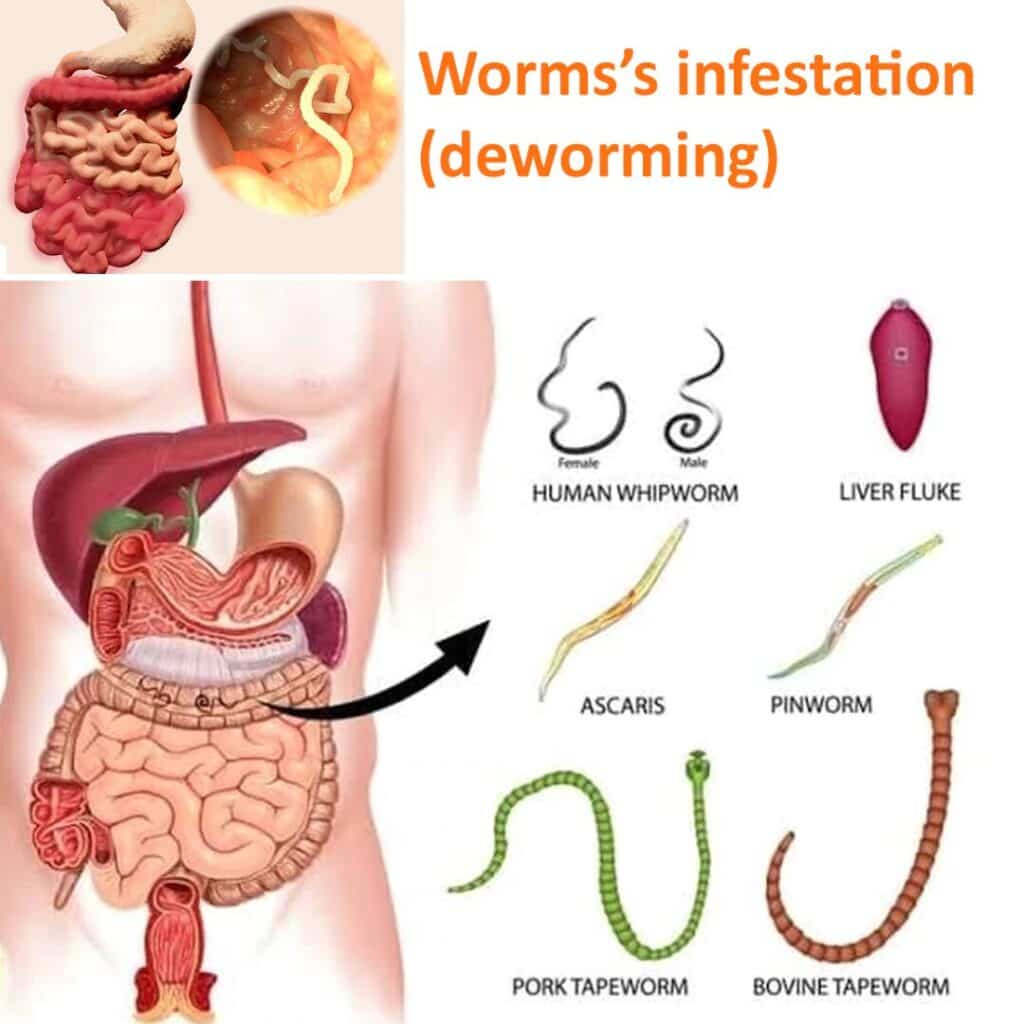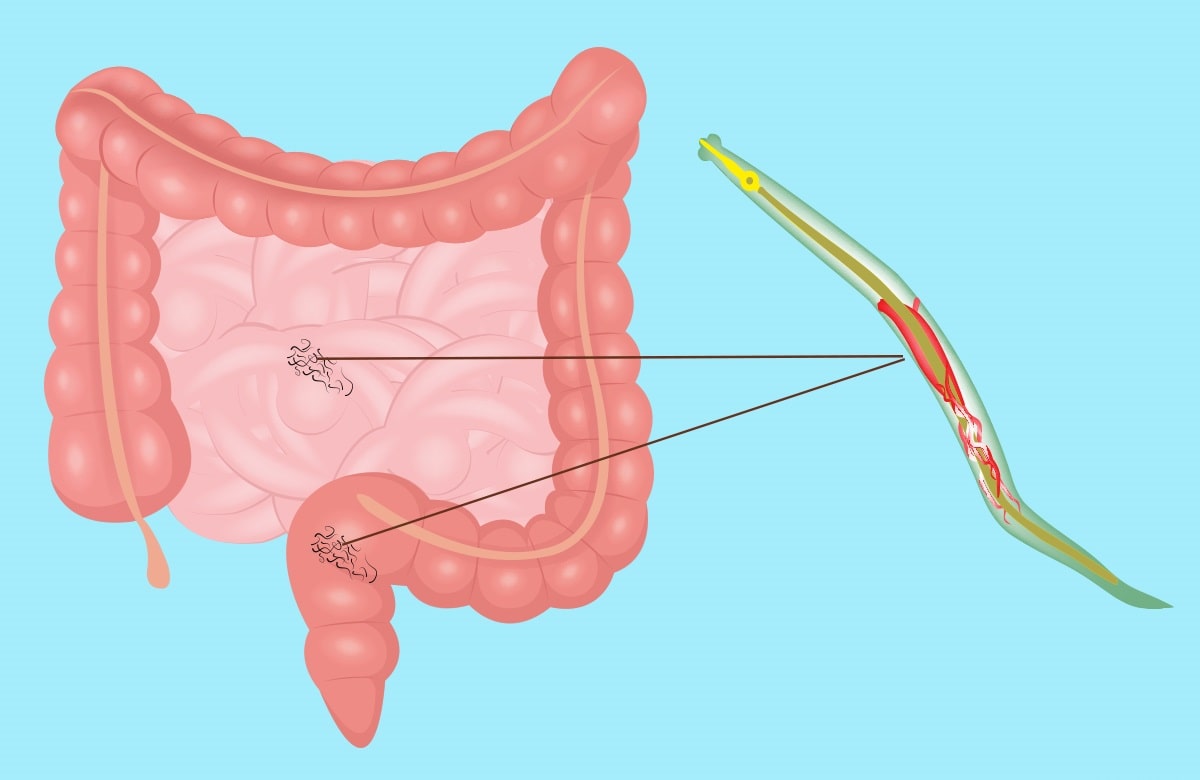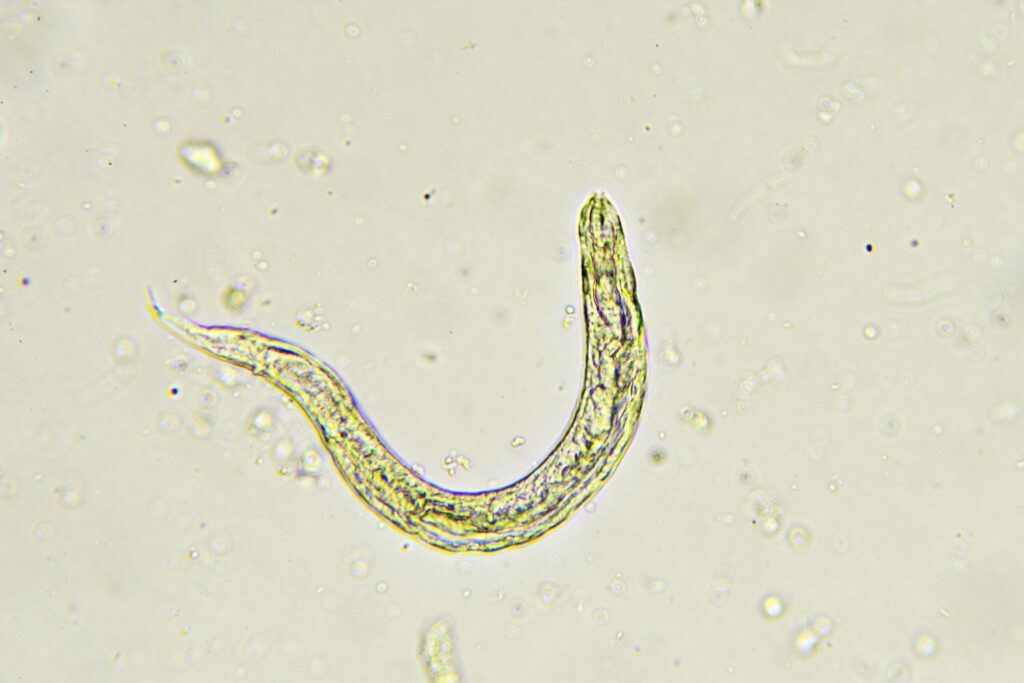WHAT IS PINWORM INFECTION?
Pinworm infection is the most common kind of intestinal worm infection in the United States and one of the most common worldwide. Pinworms are slim and white, measuring about 1/4 to 1/2 inches (about 6 to 13 millimeters) in length.
While the infected person sleeps, female pinworms lay thousands of eggs in the folds of skin encircling the anus. Most people infected with pinworms do not have any symptoms, but some people have anal itching and restless sleep.
Pinworm infection happens most usually in school-age children, and the tiny (microscopic) eggs are easily spread from child to child. Treatment includes oral drugs that kill pinworms and thorough washing of pajamas, bedding, and underwear. For best results, the whole family should be treated.

PINWORM INFECTION SYMPTOMS
Symptoms of pinworm infection might include:
- Itching of the anal or vaginal region
- Insomnia, irritability, teeth grinding, and restlessness
- Occasional stomach pain and nausea
WHEN SHOULD YOU SEE A DOCTOR?
Consult your doctor if you have severe anal itching, particularly at night.
PINWORM INFECTION CAUSES
Accidentally swallowing or breathing in pinworm eggs leads to a pinworm infection. The tiny (microscopic) eggs could be carried to your mouth by contaminated food, drink, or your fingers. Once swallowed, the eggs hatch in the intestines and mature into adult worms within several weeks.
Female pinworms move to the anal region to lay their eggs, which usually results in anal itching. When you scratch the itchy region, the eggs cling to your fingers and get under your fingernails. The eggs then get transferred to other surfaces, like toys, bedding, or toilet seats. The eggs could also be transferred from contaminated fingers to food, liquids, clothes, or other people.
Pinworm eggs could survive for two to three weeks on surfaces.

PINWORM INFECTION RISK FACTORS
Risk factors for pinworm infection include:
- Being young – Pinworm infections are most likely to happen in children ages 5 to 10. The tiny (microscopic) eggs are easily passed on to family members, caregivers, or other children in schools or child care centers. Pinworm infections are unusual in children younger than age 2.
- Living in crowded spaces – People who live in institutions are at greater risk of developing pinworm infections.
Enterobius Vermicularis
PINWORM INFECTION COMPLICATIONS
Typical pinworm infections do not cause severe problems. In rare circumstances, heavy infestations could cause infection of female genitals.
The parasite could travel from the anal area up the vagina to the uterus, fallopian tubes, and around the pelvic organs. This could cause problems like inflammation of the vagina (vaginitis) and inflammation of the inner lining of the uterus (endometritis).
Although rare, other complications of a pinworm infection might include:
- Urinary tract infections
- Weight loss
- Infection of part of the abdomen (peritoneal cavity)
PINWORM INFECTION PREVENTION
Pinworm eggs could cling to surfaces, including toys, faucets, bedding, and toilet seats, for two weeks. Thus, apart from regular cleaning of surfaces, methods to help prevent the spread of pinworm eggs or to prevent reinfection include:
- Wash in the morning – Because pinworms lay their eggs at night, washing the anal region in the morning could help reduce the number of pinworm eggs on your body. Showering might help avoid possible re-contamination in bathwater.
- Change underwear and bedding every day – This helps remove eggs.
- Launder in hot water – Wash bedsheets, pajamas, undergarments, washcloths, and towels in hot water to help kill pinworm eggs. Dry on high heat.
- Don’t scratch – Avoid scratching the anal region. Trim your child’s fingernails so there is less space for eggs to collect. Suggest that your child stop biting his or her nails.
- Wash your hands – To lower your risk of getting or spreading infection, wash your hands well after using the toilet or changing a diaper and before eating.

PINWORM INFECTION DIAGNOSIS
Your doctor could verify the presence of pinworms by identifying the worms or eggs.
To help your doctor make a diagnosis, you could perform the tape test. As soon as the person you suspect has pinworms wakes up and prior to he or she uses the toilet, washes, or gets dressed, push down the adhesive side of a part of transparent tape to the skin around the anus. The eggs stick to the tape.
For best results, conduct the tape test 3 days in a row, and then take the parts of the tape to your doctor. Your doctor can examine the tape under a microscope to determine whether there are any pinworm eggs.
PINWORM INFECTION TREATMENT
To treat pinworm infection, your doctor might recommend over-the-counter (OTC) pyrantel pamoate or prescribe medication to all members of your household to prevent infection and reinfection.
The most common prescription anti-parasite medications for pinworms include:
- Mebendazole
- Albendazole (Albenza)
You might have mild gastrointestinal side effects during the course of treatment, and you usually need to take at least two doses to get rid of the pinworms completely.
If you or anyone you know is suffering from pinworm infection, our expert providers at Specialty Care Clinics will take care of your health and help you recover.
Call (469) 545-9983 to book a telehealth appointment for an at-home check-up.
